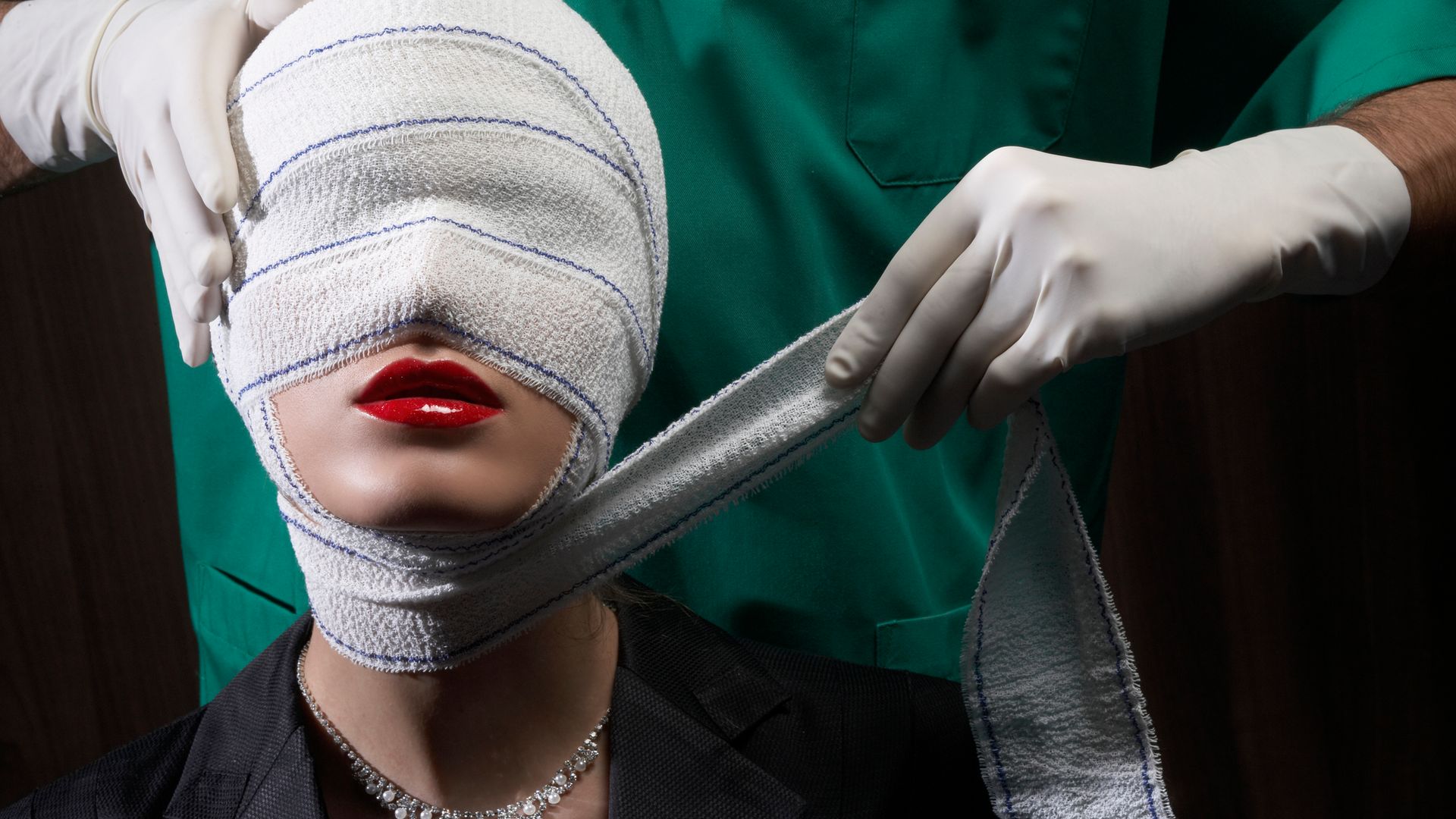For some, the luxury package holiday has taken on a whole new dimension in recent years.
Five-star hotel stays, VIP airport transfers and exclusive sightseeing tours are all pretty standard – but throw an invasive surgical procedure into the mix? Let's press pause on that for a second.
It may appear outlandish at first, but the reality is that medical tourism is on the rise.
In particular, Turkey has carved itself out as one of the globe's leading destinations. Last year alone, the country attracted 1,398,504 people for "health services", according to USHAŞ, a Turkish state-owned healthcare company.
The country places fifth in a worldwide ranking compiled by the International Society of Aesthetic Plastic Surgery, detailing the total number of aesthetic surgical procedures performed in 2022. That's a staggering 470,875 – nearly half a million – surgeries in Turkey alone.
Why are Brits flying to Turkey for plastic surgery?
So, what's the appeal? There are plenty of reasons as to why someone might consider going under the knife abroad, but Turkey's underlying allure seems to be its competitive pricing. In fact, all the plastic surgeons and aesthetic doctors who weighed in on the subject for Hello! Fashion for our February digital issue highlighted low costs as a major draw.
The price:
One thing to note is that the private sector plays a significantly stronger role in the Turkish healthcare system than it used to. In conjunction with how the country's government has strategically enhanced the boom by offering business incentives such as tax relief for the healthcare industry among other factors, the result is that Turkish clinics can offer procedures at a fraction of the price they would cost in the UK.
Marketing and social media:
Punchy headlines can generate a certain shock factor, but it's the specifics of some patient first-hand accounts that are truly nightmarish. Details of agonising pain, rotting flesh, some even having awoken from a surgery to which they had not consented – enough to make even the steeliest stomachs flip in fright.
"Aesthetic goals should be based on individual needs and desires, rather than trying to replicate someone else's appearance."
- Aftab Siddiqui, plastic surgeon.
But there is a dichotomy within the narrative. Separate from the horrors, there is buzz. And social media has a lot to answer for when it comes to not only circulating the success stories – influencer-approved procedures, personal post-op progress, dramatic before-and-after photos and the like – but also carving out aesthetic trends.
"The 'Instagram face' trend, characterised by full lips, high cheekbones, and a sculpted jawline, has influenced the demand for lip fillers, cheek fillers, and jawline contouring procedures," explains consultant plastic surgeon Aftab Siddiqui. In the same vein, he cites the "Kardashian effect" as having popularised the desire for "curvier body shapes", prompting interest in Brazilian butt lifts and body contouring procedures.
"However, it's essential to approach social media with caution and consult with a qualified aesthetic professional before pursuing any procedure […] Aesthetic goals should be based on individual needs and desires, rather than trying to replicate someone else's appearance."
But of course, being acutely aware of what other people look like, plus the ability to zoom in, is part and parcel of the modern world.
And no doubt targeted advertising, slick testimonies and luxury packages help seal the deal.
"The medical tourism industry's marketing and promotional efforts may downplay risks and emphasise success stories, swaying individuals towards taking the risk," warns aesthetic doctor and founder of SAS Aesthetics Dr Mahsa Saleki.
There is always a chance that a surgery may not go to plan, or that post-op complications may arise, irrespective of the country in which it was performed. But currently more and more people are spotlighting instances of botched surgeries, having taken place in Turkey.
Is it safe?
According to data collated by the British Association of Aesthetic Plastic Surgeons, the number of people needing hospital treatment in the UK after getting cosmetic surgery abroad has increased by 94 per cent in three years, "with procedures carried out in Turkey accounting for more than three quarters of those" in the six month period leading up to November 2023 alone.
This alarming trend is also reflected on the Gov.uk webpage dedicated to Turkey travel advice, part of which currently reads: "The standard of medical facilities and available treatments can vary widely globally. We are aware of over 25 British nationals who have died in Turkey since January 2019 following medical procedures. There were reports of an outbreak of botulism linked to weight loss treatments performed in Istanbul and Izmir in February 2023."
As concerning as that may seem, many prospective patients looking to combine surgery with sun are still choosing to go ahead, despite the potential perils. "The stringent regulations in the UK ensure the highest standards in surgical instruments, medications, and medical devices, along with well-trained and licensed healthcare staff," says plastic surgeon and medical director at Creo Clinic Dr Omar Tillo. "However, in destinations lacking such regulations, many risks may arise related to instruments, devices, staff and the ability of the healthcare system to deal with emergencies."
What are the main risks?
When considering undergoing a surgical procedure abroad, it is essential to do thorough research so that you can make an informed decision about whether to go ahead. Healthcare systems, hygiene standards and other medical regulations will vary depending on the destination country, and consultant plastic surgeon Aftab Siddiqui highlights the importance of checking that your chosen facility and surgeon meet "international standards of safety and quality".
"It's important to have realistic expectations and thoroughly communicate your desired outcome to the surgeon to minimise the risk of disappointment."
- Aftab Siddiqui, plastic surgeon
Post-op Care:
Following any surgery, the patient will need rest. Packages promising sunbathing, water-based activities, or any strenuous activities for that matter, should ring alarm bells. Returning to your home country too soon after an operation compromises your follow-up care plan, especially if any complications arise.
Travelling:
The combination of air travel and major surgery increases the risk of a blood clot, which can be extremely serious. The NHS website advises that you do not fly for five to seven days after procedures such as breast surgery or liposuction, or for seven to ten days after facial cosmetic procedures or tummy tucks.
"Prolonged periods of immobility and the trauma of surgery can contribute to the formation of deep vein thrombosis," Mr Siddiqui explains. "It's essential for patients to take necessary precautions, such as wearing compression stockings, staying hydrated, and moving around periodically during long flights, to reduce the risk of blood clots."
Dissatisfaction:
Language barriers between the patient and medical staff can be detrimental to the overall safety of the procedure, but it can also affect the patient's satisfaction levels. "Although many surgeons abroad are highly skilled and experienced, there is always a possibility of miscommunication or differences in aesthetic preferences," Mr Siddiqui says. "It's important to have realistic expectations and thoroughly communicate your desired outcome to the surgeon to minimise the risk of disappointment."
PS: See more exclusive stories from the Hello! Fashion Self Love Issue here.










